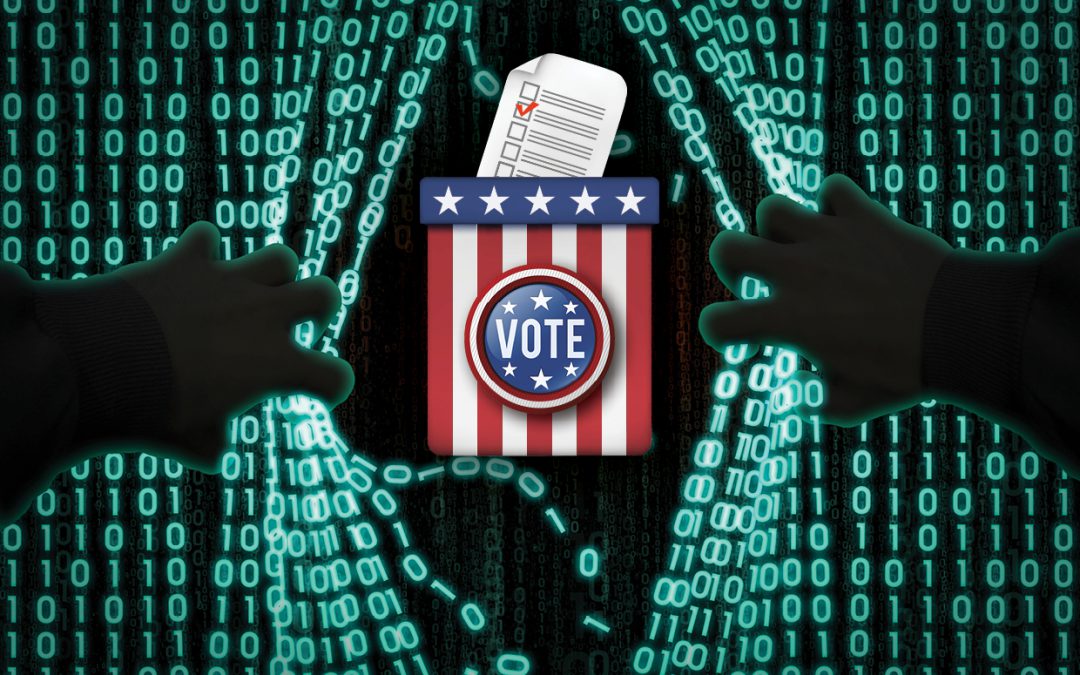Shocked, horrified, or thrilled by the outcome, millions of Americans the day after the popular vote breathed sighs of resignation or relief or even profound despair. Most were just glad that the long nightmarish ordeal of the presidential election was finally over. But that reaction may have been very premature. There’s a good chance that this contest will not be over for a long time, even after the swearing-in, and the results of what happens between now and then may very well shape the future of American democracy and the world.
Why? Because some US intelligence agencies are now claiming that the election was hacked by Russia to ensure the victory of Donald Trump. We wrote about the possibility of such electoral hi-jinks back in the October SWCP Portal. But there, we confidently noted that “there is no single point of vulnerability to attack. The entire operation cannot be rigged with one crucial hack, which makes it far more difficult to fix an election.” Difficult, it should be noted, but not impossible. With the information about which swing-states districts were critical and used electronic voting machines without paper back-ups that could have been derived from the hacks on the Democratic and Republican national committees, it might have been possible. Dead voters could miraculously come back to life, people could change parties and votes without their knowledge, names could be added or deleted, and it all might be very difficult to detect.
Indeed, the recounts have not shown any smoking guns yet, but Michigan has found “significant mismatches” in some actual votes which need to be audited. While other recounts sputter along, attention has shifted to the massive leaks of Democrats’ emails and the huge flood of disinformation or “fake news” before the election that only seemed to tar the Democratic candidate. Despite the president-elect’s strident denials, the publicly-known evidence shows a clear pattern of Russian hacking in his favor. And after all, early in the campaign Trump publicly called for Russia to hack Clinton.
Official investigations are underway: President Obama has recently initiated one, and Sen. John McCain wants the Armed Services Committee to look into it, too. Yet, despite the seriousness of the situation and the stakes involved, the president is being strangely indifferent and the agency who should know most about what foreign hackers are up to, the National Security Agency, has been totally silent. Why?
For one thing, even if the administration knows exactly what happened and to what extent foreign powers may be involved, their hands may be tied. Who knows where else and how deeply the Russians or others may have penetrated? Worse, if any nation-state actively tampered with the vote, would that not be an act of war? But if they only hacked emails and spread disinformation, how should the United States react? It’s still cyberwar, after all.
Doubtless, the intelligence agencies are fearful of disclosing too much information for fear of giving possible foes an advantage. Cyberwar is best done undeclared and covertly, with plenty of plausible deniability to spread around. So maybe, some bitterly cold winter night, Moscow will mysteriously lose electrical power. But if that happens, what would prevent Putin from striking back? Tit for tat could escalate easily from cyberweapons to the real things.
An even worse possibility is that Trump, who looks like he’s becoming Putin’s best friend, might not be a totally innocent benefactor of these efforts. Since Vladimir Putin was in Russian intelligence back in the old KGB days, it’s entirely possible that he could have piles of blackmail material on the president-elect. Or he may know precisely how to manipulate the man. It’s even conceivable, albeit unlikely, that they may even have made a secret deal for all we know. Then again, perhaps the NSA knows all about that, and will use it to their own advantage.
The problem, to mix metaphors, is that going down the rabbit-hole lands us in a hall of mirrors. We can speculate all we want but it’s the facts that matter. It’s highly likely that any assessment by Congress will take months, if not years, and by then, it may be far too late. Because technically, of course, the election hasn’t happened yet. The popular vote is finished, but the constitutional electors meet on December 19.
Electors are expected to vote according to the people’s choices, so the event is usually a scripted rite with less suspense than a civics class. This year might be different if so-called “faithless electors” vote their consciences instead of as ordained. There are calls in Congress to declassify whatever information the administration has to allow the electors to do so, and there is also an online petition being circulated to demand it.
Twenty-one states have no laws to prevent electors voting as they choose, while the remainder have slight penalties for such actions, because constitutionally, electors have the right to vote according to their consciences. Such electors have changed their votes 157 times in past contests, but never has a presidential outcome been changed. There’s a concerted effort this year among the electors to dump Trump, but in favor of another Republican rather than Hillary. While it’s very unlikely such an attempt will succeed, but it shows the depths of uncertainty still remaining.
A constitutional crisis cannot be ruled out, nor can civil unrest and violence. So stay tuned. The show is not over yet, folks, and the stakes are as high as they ever have been.

